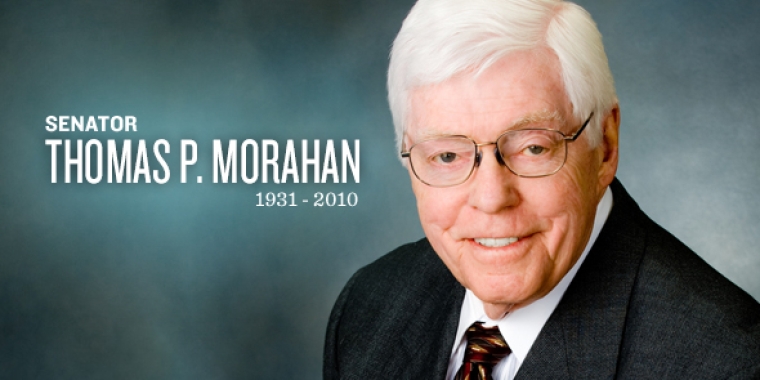
Senator Urges Governor To Protect Homeland Security By Signing Landmark Id Theft Legislation
As Americans mark the fifth anniversary of the attack on America, New York State Senator Thomas P. Morahan today urged Governor Pataki to sign ID Theft legislation that would require New York State businesses to implement appropriate safeguards limiting access to an individual's Social Security number. Passed by the New York State Assembly and Senate, the Governor has until Wednesday (9/13/06)to approve or veto the Social Security Number Privacy Bill (S.6909), which was introduced in the Senate by Morahan.
"On this fifth anniversary of the 9/11 attack on America, the Federal Government has acknowledged that the threat to homeland security is dramatically increased daily as Social Security numbers of unsuspecting workers are stolen. Governor Pataki needs to listen to the findings of the Federal Trade Commission, which estimates that 10 million Americans have their identities stolen each year. Their most current statistics reveal that illegal immigrants make up nearly one of every 20 workers in America, with most working under fraudulent Social Security numbers," said Morahan.
"I was shocked to recently learn that Rockland County, which I represent, has one of the state's highest rates of reported incidents of ID Theft."
In urging the Governor to sign the Social Security Number Privacy Bill into law, the Senator reiterated that it would "significantly protect privacy of the Social Security numbers of millions of hardworking New Yorkers, as well as contributing to the overall security of the state".
The proposed law would place limits on the use and disclosure of an individual's Social Security account number (SSN). Specifically, the legislation would:
* prohibit the intentional communication of an individual's SSN to the general public;
* restrict businesses' ability to print an individual's SSN on mailings or on any card or tag required to access products, services or benefits;
* prohibit businesses from requiring an individual to transmit his or her unencrypted SSN over the Internet; and
* require businesses who possess SSN to implement appropriate safeguards and limit unnecessary employee access to SSNs.
#####
